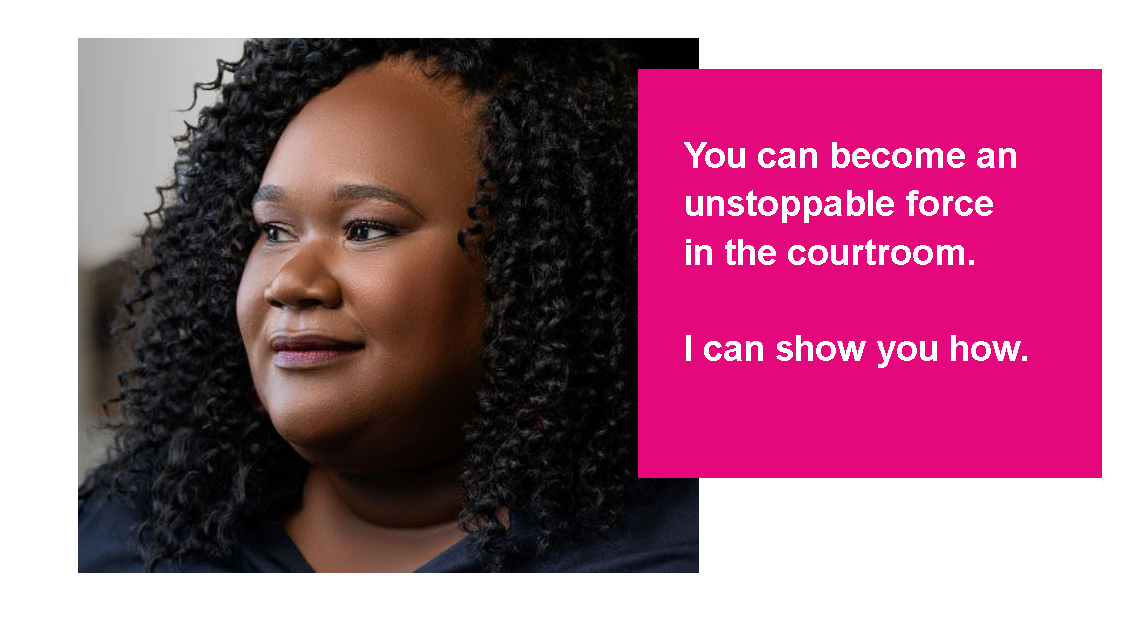


How to Find the Right Mentor as a Female Lawyer?
As a fresh graduate from law school, you are looking forward to building a career within the legal community and using your skills, talent and passion in the service of justice. It is an appealing image, but until it becomes a reality, women in law must face many challenges. One of them is apparent when we look at statistical data. According to the Glass Ceiling Report, women are underrepresented in private legal practices – amounting to only 24% of equity partners.
In this context, mentorship is one of the most important elements at the foundation of success in law practice. A mentor can guide and assist a young female attorney, become her advocate among their peers and help advance her career. An experienced attorney will always want to pass on the know-how and experience they have accumulated over decades of representing clients and solving legal challenges. They can offer career advice, helping inexperienced lawyers avoid pitfalls, such as pursuing passing industry trends.
How Important Is the Right Mentor for the Development of Your Career in Law?
When looking for potential mentors, many junior lawyers are ready to accept anyone who is willing to give them time and attention. In reality, just as, as a student, you selected the right professor to be your thesis supervisor, you need to apply the same diligence in evaluating prospective mentors and approaching the right one.
For a female lawyer, mentorship is not only about getting advice from senior attorneys on how to analyze a potential case and how to speak before judge and jury. You will have to face unprecedented issues, from clients who refuse to be represented by a female attorney to sexism in the courtroom. The legal industry still has to overcome outdated and unfair practices, but with each successful female attorney they are left behind and become part of the past.
Exclusive Industry Reports: Women Lawyers Leave the Industry
The American Bar Association surveyed over 1,200 attorneys working for big law firm. The survey results indicated that a significant number of women attorneys were leaving the legal profession, for various reasons, including:
- reduced or non-existent access to career development opportunities
- being denied promotion or overlooked in favor of a male colleague
- being perceived as less career oriented as their male peers.
A model mentor can change these attitudes within legal teams and shift the focus from preconceived attitudes to the actual set of skills, passion and determination women lawyers have and the many benefits they bring to a practice they work for. Indeed, the same ABA survey cited above offers a ray of hope for women who seek career success in the law industry. The authors of the survey found out that:
- 75% of experienced male attorneys state that their firms promoted women into leadership positions
- 64% male managing partners successfully retained experienced female lawyers in their law firms
- 91% of male attorneys are active advocates of gender diversity in law firms.
How Can You Find the Right Mentor?
Effective mentorship is an organic, nurtured relationship where transfer the knowledge occurs naturally, as a response to a mutual understanding between mentor and mentee. Talented women attorneys need to use their communication and emphatic skills not only in building client communication skills, but also in identifying their peers and superiors who are encouraging them to persevere and celebrating their achievements.
Now, how exactly can you discover mentoring opportunities and approach the right person? Here are some thoughts:
1. Know What You Are Looking For
First of all, you must know what sort of mentor you need. In order to do so, you must assess your own values and ideal career path. Do you want to join a big law firm? Do you want to open your own legal practice? Or do you want to pursue an academic career in law? Each of these career goals will point you towards a different set of mentors.
2. Start Early – Since Law School

Prospective mentoring relationships start while you are still in law school. You have ample opportunities to participate in events, or start internships at law firms. Many law students are aware that this is their chance to start building their future career and go above and beyond the standard requirements in being helpful and proactive in their duties.
Apart from getting in touch with real law firm life, female law students can find role models they want to emulate. These role models can become mentors guiding them on their career path.
3. Make Networking Second Nature to You
Mentorship moments do not jump at you – they arise naturally as you connect with seasoned attorneys on and off work. You should accept all opportunities to attend conventions, video conferences and various social events. As you bring your input, or simply ask the right questions, you will make your presence known and your potential noticed. At the end of these events, take the time to follow-up on new connections.
Get to know not just your superiors, but also your peers. Junior attorneys can point you in the right direction and give you helpful tips on how to approach a potential mentor. Remember that senior lawyers are very busy. Thus, you must be tactful and respectful of their time when approaching them for advice and guidance.
4. Ask Your Employer about Their Mentorship Program
Various law firms want to assist junior lawyers in their first career steps by offering a formal mentoring program. This may be a good head start. Even if, ultimately, it is not what you are looking for, you will learn valuable mentee skills. Mentorship is a two-way relationship. You must prove yourself, demonstrate dedication and focus on building your career, as well as excellent listening skills. Always show that you followed the advice you received and include your mentor in the celebration of your first successes.
5. Join Online Mentorship Networks
Mentorship networks are equivalent to social media networks, such as LinkedIn. You register yourself as a mentee and can start connecting with potential mentors who opted to join the network. The downside is that you do not know personally your potential mentor – they may live in another city or another state. However, since a large part of your work is online right now, you should take advantage of any opportunity to receive meaningful mentorship, including through video calls.
6. Take the Direct Approach – Ask for Mentorship
You will never know whether you can obtain something if you don’t ask for it. As a lawyer, especially as a female lawyer, you have to learn to be assertive. When you identify a potential mentor among the legal professionals in your business circle, don’t be afraid to approach them and ask them. Many excellent mentors may not be aware that you are looking up to them and wish to receive guidance from them.
As I stated above, lawyers are very busy. They don’t have the time to notice subtle signals that are too faint to be interpreted as anything more than collegial courtesy and respect. Prepare your speech carefully and find an opportune moment for an informal discussion with the experienced attorney.
How to Be the Ideal Mentee
So far, you learned what you need to look for in a mentor and how to approach them. But you must also bring something to the table – you must impress your mentor and make them feel a sense of achievement from the effort they make in guiding you.
Thus, you need to nurture a set of mentee skills, such as:
1. Show Them that You Are Worthy of Their Time and Effort
Although you should actively seek out a mentor, you should do that once the respective person has had the opportunity to notice you through your work, business etiquette and contributions to the success of the entire legal team. Mentoring means more than just time an effort – it is a personal endorsement of your qualities as a lawyer.
2. Be Respectful of Your Mentor’s Time
A mentor takes time out of their busy schedule to guide you in your career. Whenever you have a meeting, make sure that you arrive on time and do not waste precious minutes on issues not related to mentoring. Do not interrupt your mentor’s schedule with impromptu questions. Courtesy and respect are the ingredients that nurture a successful mentoring relationship.
3. Show Your Gratitude
As a mentee, remember to show gratitude. It is in the small things – sending your mentor a “Thank You” card, acknowledging their role in your success and helping them out when they ask for your assistance. These are the rewards that determine mentors to take the time and guide young female lawyers – the sense that they are building not just a successful career, but a great character.
Over $30 million dollars
in verdicts and settlements recovered for my clients
in Total Settlements in 2020
in Referral Fees in 2020
Birmingham Business Journal Women to Watch
Alabama Super Lawyers Rising Stars
in verdicts and settlements recovered for my clients
in Total Settlements in 2020
in Referral Fees in 2020
Birmingham Business Journal Women to Watch
Alabama Super Lawyers Rising Stars

